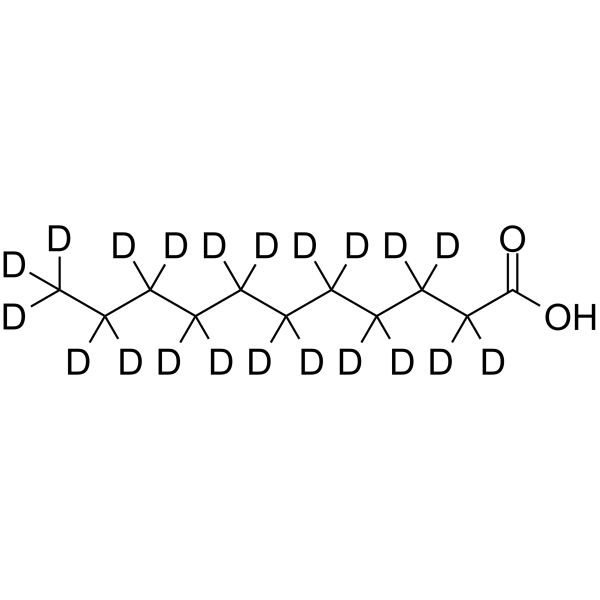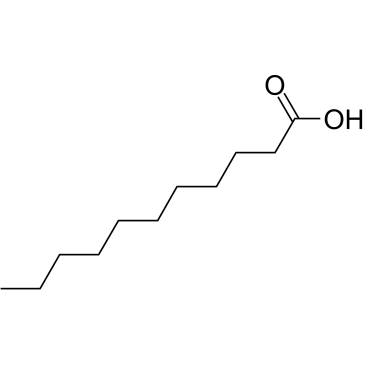60658-40-4
| Name | dodecanoic-d23 acid |
|---|---|
| Synonyms |
perdeuterated formic acid
Perdeuterated undecanoic acid Formic acid-d2 deuterated formic acid |
| Description | Undecanoic acid-d21 is the deuterium labeled Undecanoic acid. Undecanoic acid (Undecanoate) is a monocarboxylic acid with antimycotic property, which inhibits the production of exocellular keratinase, lipase and the biosynthesis of several phospholipids in T. rubrum[1]. |
|---|---|
| Related Catalog | |
| In Vitro | Stable heavy isotopes of hydrogen, carbon, and other elements have been incorporated into drug molecules, largely as tracers for quantitation during the drug development process. Deuteration has gained attention because of its potential to affect the pharmacokinetic and metabolic profiles of drugs[1]. |
| References |
| Boiling Point | 225ºC100 mm Hg(lit.) |
|---|---|
| Melting Point | 44-46ºC(lit.) |
| Molecular Formula | C11HD21O2 |
| Molecular Weight | 207.42 |
| Flash Point | 134.1ºC |
| Exact Mass | 207.29400 |
| PSA | 37.30000 |
| LogP | 3.60180 |
|
~% 
60658-40-4 |
| Literature: Poupko, R.; Luz, Z.; Spielberg, N.; Zimmermann, H. Journal of the American Chemical Society, 1989 , vol. 111, # 16 p. 6094 - 6105 |
| Precursor 1 | |
|---|---|
| DownStream 0 | |
